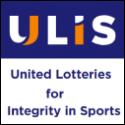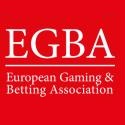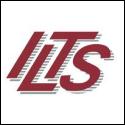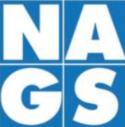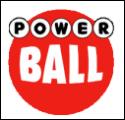Swedish Court Orders Refund of Losses for Gambling Addiction
![]()
SWEDEN (March 18, 2024) — In December 2023, a groundbreaking judgment was delivered by the Swedish Patent and Market Court of Appeal in favour of a former gambling addict who incurred a loss of over EUR 500,000 through gambling. The court ruled that the individual was entitled to reimbursement from the gambling company, as the bets were deemed void under the Swedish Contracts Act. The landmark ruling allows individuals who lost money under similar circumstances to seek similar compensation from Swedish gambling companies.
Background
Between 2009 and 2014, the plaintiff lost over EUR 700,000 while gambling with a licensed gambling company. In 2014, the plaintiff sought to self-exclude from the company and was subsequently medically diagnosed with a gambling addiction. The plaintiff filed a lawsuit against the gambling company, claiming reimbursement of his losses and compensation for the mental distress caused by the company’s aggressive marketing strategies directed towards him. The Swedish Patent and Market Court dismissed the claims, prompting an appeal to the Swedish Patent and Market Court of Appeal.
The Court’s Decision
The Swedish Patent and Market Court of Appeal ruled that the relevant agreements, which consisted of each bet the plaintiff had placed, were null and void under the rarely applied Section 33 of the Swedish Contracts Act. Section 33 stipulates that an agreement can be invalidated if it was created under circumstances that contravene the principle of good faith and fair dealing, if the counterparty was aware of those circumstances. Historically, Section 33 has been applied mainly in cases where one party was at a disadvantage due to mental or psychological weakness, old age, or illness, and the counterparty exploited this vulnerability.

The Court’s Rationale
In order to determine the validity of the bets, the Court examined two main factors stipulated in Section 33 of the Swedish Contracts Act.
Firstly, the Court reasoned whether the circumstances at the time of placing the bets were contrary to good faith and fair dealing. It was established that the plaintiff had a gambling addiction. The plaintiff’s gambling behaviour was also analysed by a professor of statistics, who found a strong correlation between the gambling company’s marketing efforts, such as depositing bonuses into the plaintiff’s account, and his gambling patterns. Based on these findings, the Court concluded that the plaintiff had a severe gambling problem, evident at least from the end of 2011.
Secondly, the Court examined whether the gambling company was aware of this circumstance. The Court stated that by early 2012, the plaintiff was categorized as a “VIP customer” and was assigned a personal contact at the gambling company. From this point on, the plaintiff deposited approx. EUR 950,000 and incurred a net loss of around EUR 530,000.
The Court clarified that it was not necessary for the gambling company to have known that the plaintiff was medically diagnosed with a gambling addiction. Rather, if the gambling company was aware of his serious gambling issues, it would be deemed to have been aware of the circumstances contrary to good faith and fair dealing.
The Court found that the gambling company had persistently directed aggressive marketing towards the plaintiff, repeatedly offering him bonuses to stimulate further gambling and having employees contact him personally on several occasions with tailored messages. The Court concluded that the gambling company must have recognised the plaintiff’s vulnerable position due to his gambling addiction, and that the agreements with the plaintiff from 2012 onwards, consisting of the bets placed by him, would be contrary to good faith and fair dealing.
The Court subsequently declared these bets void and ruled that the plaintiff’s net loss be refunded. The Court also held the gambling company liable for negligently causing the plaintiff psychological distress through its intrusive marketing and ordered it to compensate him for his mental suffering.
Unpacking the Court’s Verdict: Impact on gambling practices and individual rights
The judgment applies the principle of good faith and fair dealing, as expressed through Section 33, to invalidate transactions that are dishonourable, particularly when one party is in a vulnerable position. The provision has historically been applied with great caution.
In 2019, the Swedish gambling market was substantially regulated, resulting in many of the marketing tactics employed by the gambling company in this particular case being deemed illegal. As such, this case is unlikely to significantly impact the current marketing practices of gambling companies. Nonetheless, it does present an opportunity for individuals with a history of gambling addiction to seek reimbursement for money they have lost, provided that the gambling companies utilized comparable marketing strategies and were aware that the individual had gambling problems. Swedish gambling companies face heightened financial risks in this regard.
Moreover, the judgement highlights the impairment that a gambling addiction can cause to an individual’s capacity to safeguard their own interests, which gambling providers need to bear in mind. The ruling also sets a precedent whereby gambling providers could be held responsible for psychological distress stemming from gambling addiction if they act negligently towards the addict, specifically through aggressive marketing strategies and incessant invitations to place bets.
Appeal and ongoing monitoring
Normally, decisions of the Patent and Market Appeal Court are not appealable, but in rare cases the court allows an appeal to the Supreme Court, which the gambling company has stated it will do. The question looms whether the Supreme Court will review the case. Regardless, it’s worth monitoring the progress of this case and continuing to assess its influence on the Swedish gambling market.
By: Michael Butler, Jonathan Wikstrom and Magda Lundh Woldegiorgis
SOURCE: Bird & Bird LLP / Lexology.
Tags: Gambling addiction, Swedish Court, Refund of Losses













